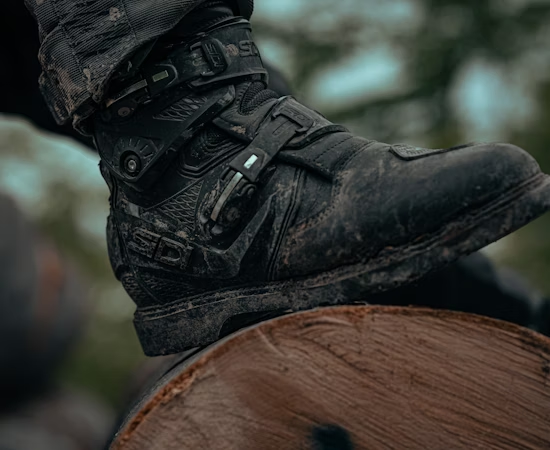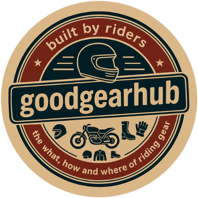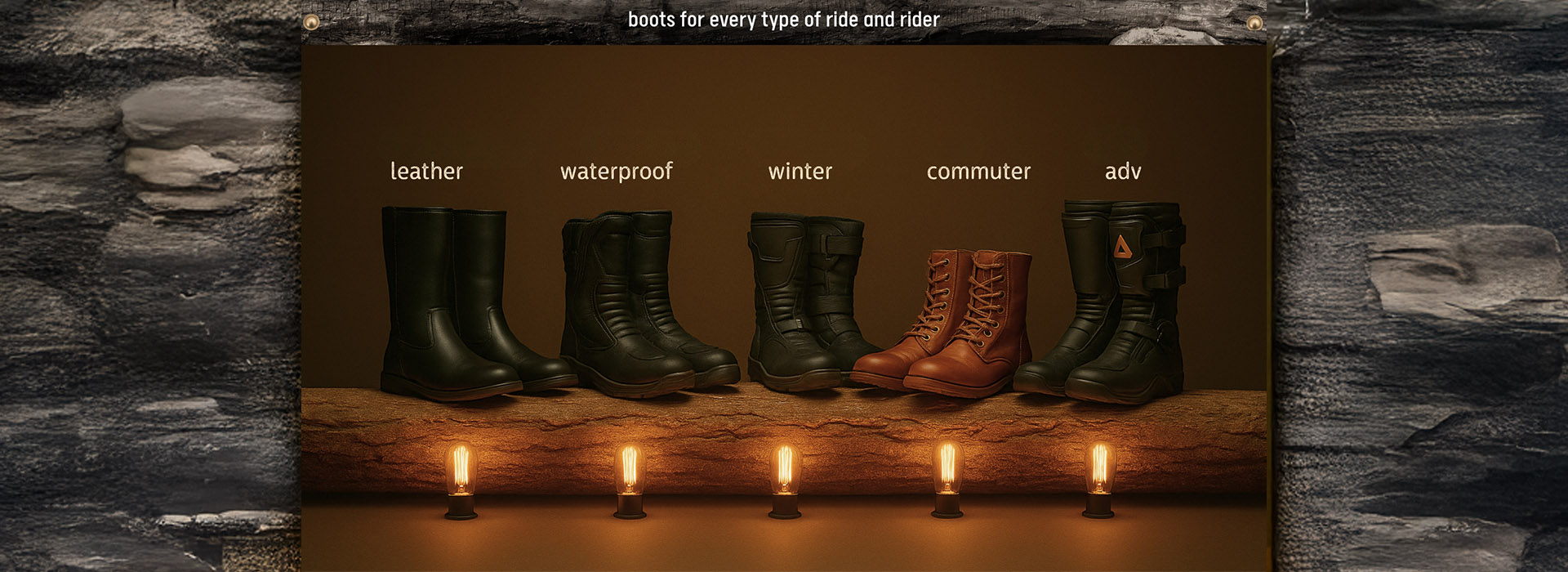
Motorcycle Riding Boots
Start with the GearFinder Tool to pinpoint exactly what you need — then use the guide, built from 20 years and 2M km of riding, to choose the right boots for your style, terrain, and trips.
Here is the link to the gear finder tool – https://goodgearhub.com/gear-finder-tool/
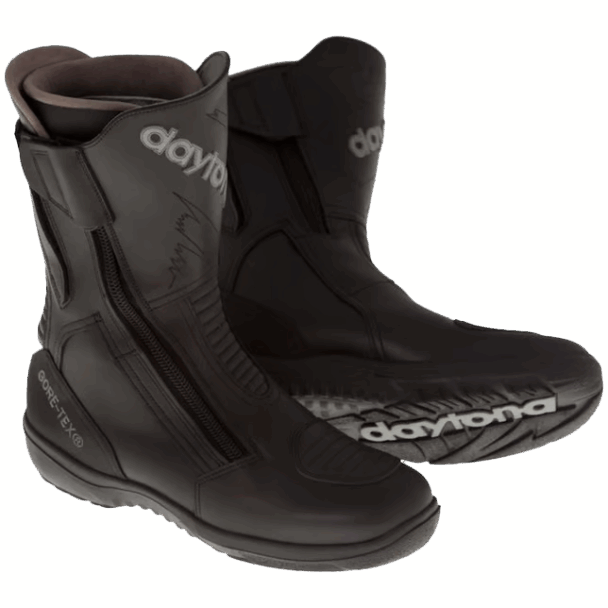
touring
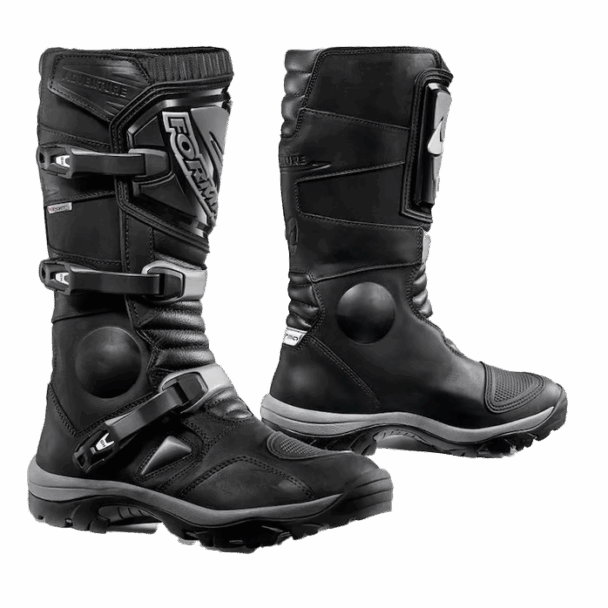
ADV / adventure
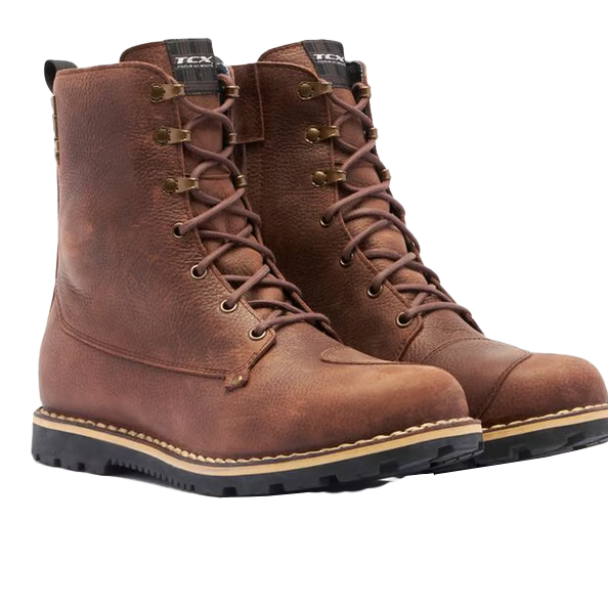
leather
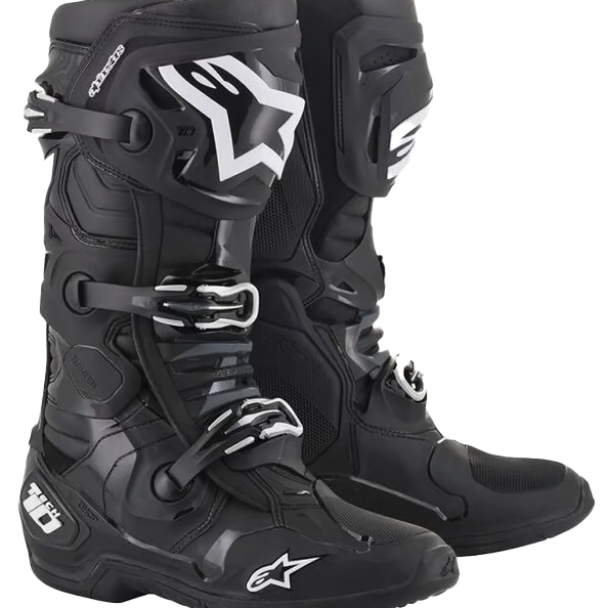
enduro
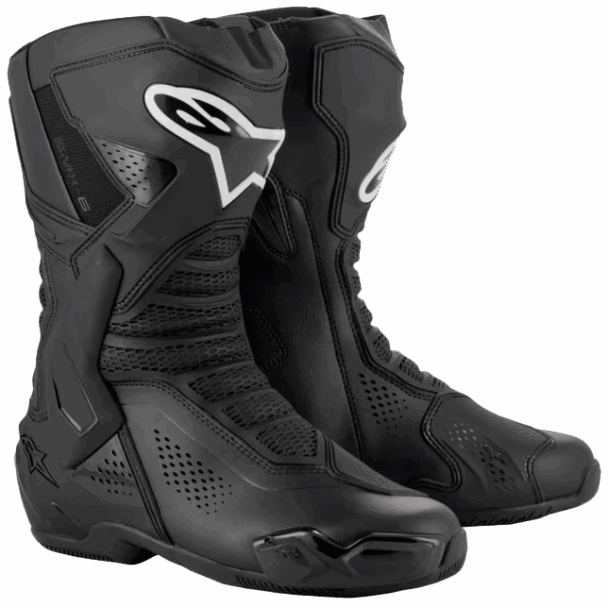
race
Not sure which motorcycle riding boots are right for you? Scroll down for our expert guide — built from 20 years and 2M km of riding — to choose your perfect boots.
How to Choose the Right Motorcycle Riding Boots
Motorcycle riding boots aren’t just about style — they are your first line of defense when things go sideways, shielding your feet, ankles, and lower legs from impact, abrasion, burns, water, and fatigue. Whether you’re on a 20-minute city commute or a 3,000-kilometer transcontinental ride, the right pair of boots can define your experience.
But most riders don’t know what to look for. Do you really need shin armor? Will waterproofing make them stiff? What’s the difference between race and ADV boots anyway?
Let’s break it all down.
Why You Shouldn’t Ride Without Motorcycle Riding Boots
Plenty of riders make the rookie mistake of using hiking or work boots. Here’s why that’s a bad idea:
No ankle support – Common boots don’t account for lateral twists or roll protection.
No gear-shift reinforcement – You’ll wear through them fast.
No abrasion or crush protection – In a slide or impact, your feet are exposed.
No waterproofing or ventilation – Miserable in monsoons or heatwaves.
Motorcycle riding boots are built for the job — CE-certified materials, reinforced soles, gear-shift panels, shin and heel armor, waterproof liners, quick-release closures — every feature exists because of what the road can throw at you.
Types of Motorcycle Riding Boots
Different rides demand different boots. Here’s how the main types break down:
Touring Boots
Use: Long-distance road riding, highway cruising, weekend getaways
Features: Tall shaft, waterproofing, comfort insoles, shin and ankle protection
Pros: All-weather comfort, balanced protection
Example Riders: Sport-tourers, touring bikes, commuters
Best for: City-to-mountain routes or 300km+ weekend rides
Adventure / ADV Boots
Use: On/off-road, overlanding, transcontinental rides
Features: Maximum protection, tall profiles, waterproof liners, aggressive tread, impact armor
Pros: Built for crashes, creek crossings, and broken terrain
Cons: Stiff and heavy for everyday wear
Racing / Track Boots
Use: High-speed track days, performance riding
Features: Replaceable toe sliders, hard heel cups, shin plates, torsion control systems
Pros: Maximum abrasion resistance and ankle stability
Cons: Not built for walking or all-day wear
Urban / Casual Boots
Use: City riding, short commutes, cafe runs
Features: Sneaker-like styling with riding reinforcements
Pros: Walkable, lightweight, versatile
Cons: Limited high-speed protection
Enduro / MX Boots
Use: Off-road, trail, motocross, enduro rally
Features: Massive shin plates, knee integration, buckles, crush-resistant sole, maximum armor
Pros: Toughest category for the gnarliest terrain
Cons: Overkill for street use
What to Look for in a Good Pair of Motorcycle Riding Boots
CE Certification – Tested for impact, crush, and abrasion.
Ankle Protection – Reduces injury during slides, high-sides, or bike drops.
Reinforced Toe & Heel – Keeps your feet intact in case of collision.
Sole Grip & Rigidity – Prevents footpeg fatigue, offers traction on gravel or oil.
Waterproofing – Dry feet = longer, more comfortable rides.
Ventilation – Critical in tropical or desert heat.
Closure Systems – Buckles, zippers, or BOA for quick secure fit.
Shift Pad – Prevents boot wear at high-use points.
How to Pick the Right Motorcycle Riding Boots for Your Ride
Ask yourself:
Where do you ride most often — city, highways, mountains, or off-road?
What’s the weather like — hot, wet, cold, or all-season?
How long is your average ride — 20 minutes or 2000 km?
Then choose:
Touring boots – for 80% road and all-day comfort.
ADV boots – for dirt detours or international overlanding.
Racing boots – for lean angles and lap times.
Urban boots – if you’re on and off the bike often.
MX boots – only if you’re off-roading seriously.
Care and Maintenance of Motorcycle Riding Boots
After every ride: Wipe clean with a damp cloth.
Weekly: Check for buckle, sole, or stitching damage.
Monthly: Apply waterproofing spray if applicable.
Every season: Clean liners, especially if removable.
Fit, Sizing & Comfort Tips — Read Before You Buy Motorcycle Riding Boots
Getting the right size isn’t just about comfort — it’s about safety, control, and endurance.
Fit First, Then Features
Try before you buy whenever possible.
Wear your normal riding socks.
Ensure snug fit at heel, midfoot, and ankle.
Leave a 1 cm toe gap for impact safety.
How to Measure Right (If Buying Online)
Stand on paper with socks on.
Trace your foot and measure heel to big toe.
Add 1–1.2 cm buffer.
Compare to brand sizing charts.
Socks Matter More Than You Think
Use moisture-wicking, tall riding socks.
Avoid thick cotton socks for sizing accuracy.
Don’t fold socks near the ankle.
Tall vs Mid vs Short Boots
Tall boots – maximum protection, longer break-in.
Mid boots – balanced protection and mobility.
Short boots – walk-friendly but less protective.
Break-In Tips
Wear indoors before riding.
Use leather conditioner for flexibility.
Waterproofing & Weather Fit
Waterproof liners add bulk and insulation.
Ventilated boots are best for hot, dry climates.
Quick Recap — Motorcycle Riding Boots Fit Tips Checklist
Measure foot length properly.
Leave 1–1.2 cm toe gap.
Wear riding socks when testing.
Ensure no heel lift or ankle slop.
Pick shaft height based on ride type.
Break in gradually.
GoodGear ProTips for Motorcycle Riding Boots
Don’t size up — good boots break in, loose boots break you.
Use dual-sport soles if you ride off-road.
Waterproof boots save rides in bad weather.
Zipper + velcro + buckle = best closure system.
Tall socks prevent chafing.
Race boots are for the track, not daily commuting.
Till affiliate links are not in place consider our go to places
Trusted Gear Links
USA
EU/UK
https://www.sportsbikeshop.co.uk
https://www.championhelmets.com
SPECIALIST GEAR SITES
https://www.lonerider-motorcycle.com
